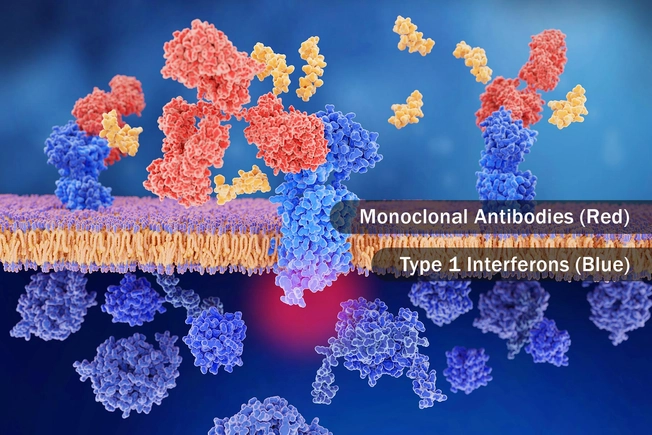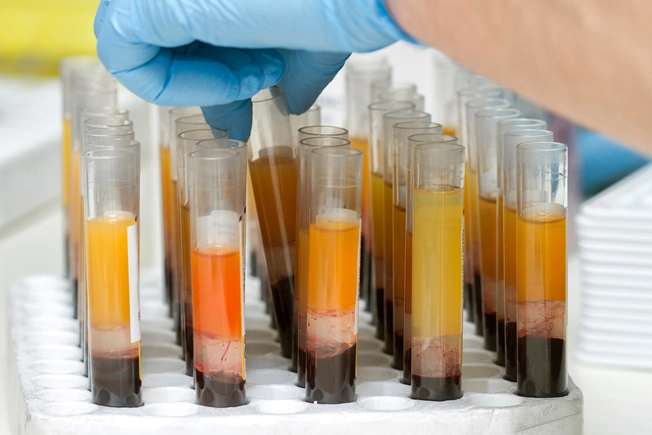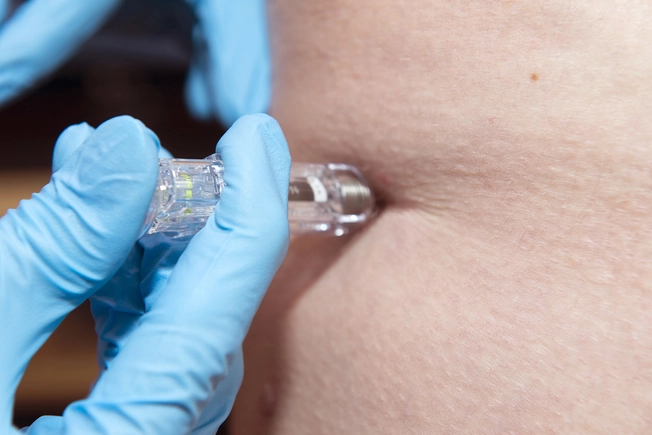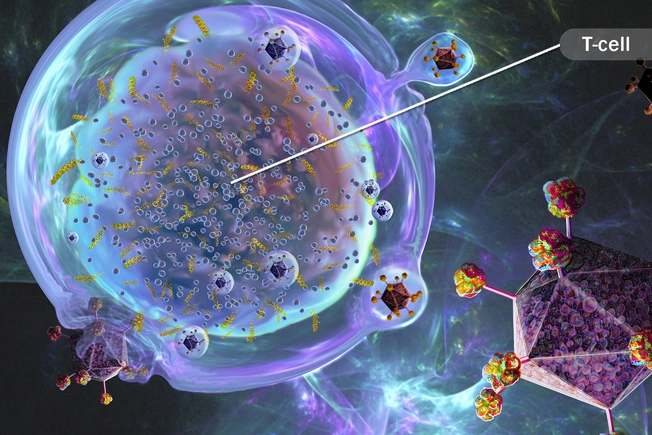The Latest Advances in Lupus Treatment


Monoclonal Antibodies: Benlysta
Monoclonal antibodies are lab-made proteins that fight disease by acting like proteins in your immune system. They latch onto and block specific substances in your body that cause disease. Benlysta (belimumab) is an FDA-approved monoclonal antibody that treats both systemic lupus erythematosus (SLE), the most common type of lupus, and lupus nephritis (kidney disease caused by SLE). It blocks B cells that cause inflammation in SLE.

Monoclonal Antibodies: Saphnelo
Saphnelo (anifrolumab) is an FDA-approved monoclonal antibody for moderate to severe SLE. This medicine targets and blocks proteins called type 1 interferons that help cause inflammation in lupus.

Monoclonal Antibodies: Other B-Cell Therapies
Immune cells called B cells are overactive in people who have lupus. Researchers are testing monoclonal antibody drugs like atacicept, blisibimod, Gazyva (obinutuzumab), and Rituxan (rituximab) as a way to target B cells and reduce their numbers.
These drugs are in clinical trials for SLE, but some clinics may already use rituximab in this way.

Monoclonal Antibodies: Plasma Cell Treatments
In lupus, your plasma cells release auto-antibodies. This type of antibody attacks your own cells as if they were a virus or other infection. The attack causes inflammation that leads to painful lupus symptoms. Researchers are studying daratumumab, a monoclonal antibody that reduces plasma cells, as a way to stop the immune system’s attack on itself.

Monoclonal Antibodies: Stelara
This drug, which has FDA approval to treat several other autoimmune diseases, targets two proteins that help fuel the overactive immune system that causes lupus. Some early clinical trials showed that Stelara (ustekinumab) might work for people who have lupus, but later phases did not get such good results.

CAR T-Cell Therapy
Technicians in a lab can reengineer immune cells called T cells to latch onto and kill specific disease-causing cells in your body. Doctors already use this method, called CAR T-cell therapy, to treat certain blood cancers. Early studies on a small number of people show that CAR T may also work to target B cells in lupus and successfully treat the disease.

T-Cell Therapy: Voclosporin
An overactive immune system causes the inflammation and pain you get from lupus. Inflammation can reach the kidneys, a condition called lupus nephritis, and affect how well they filter waste. Voclosporin (Lupkynis) is FDA-approved for lupus nephritis. It interferes with T cells to reduce the immune-system activity that causes the kidney problem.

T-Cell therapy: Rapamycin, Tacrolimus
Rapamycin (Rapamune, Sirolimus) and tacrolimus (Prograf) are drugs that suppress the immune system after an organ transplant. This helps ensure the body won’t reject the organ. The drugs affect T cells in a way doctors think could treat lupus, but studies on this approach are just beginning.

T-Cell Therapy: Lupuzor
Researchers are exploring whether this drug may treat lupus by changing the way T cells act. But it’s too early to tell. The drug is still in development with clinical trials in the works.

Disease-Modifying Drugs: Arava
Drugs that calm an overactive immune system in other autoimmune diseases might help in lupus, too. FDA-approved Arava (leflunomide) slows down the production of immune cells that ramp up inflammation, stiffness, and joint pain in arthritis. Research is under way to learn whether this medicine could have the same effects on lupus.

Stem Cell Transplant
A stem cell transplant essentially replaces a broken immune system with a brand new, healthy one. Doctors are exploring this option for people with severe, life-threatening autoimmune diseases that don’t respond to other treatments – including lupus. The process uses your own stem cells or cells taken from a donor. However, for some people, it only works for a little while before symptoms come back. It’s also a risky procedure.
IMAGES PROVIDED BY:
NANO CLUSTERING / SCIENCE PHOTO LIBRARY / Getty Images
JUAN GAERTNER / SCIENCE PHOTO LIBRARY / Getty Images
Daniel Chetroni / EyeEm / Getty Images
eldemir / Getty Images
Dr. P. Marazzi / Science Source
KEITH CHAMBERS / SCIENCE PHOTO LIBRARY / Getty Images
peterschreiber.media / Getty Images
sturti / Getty Images
Solskin / Getty Images
ADAM GAULT / SPL / Getty Images
Jose Oto / Science Source
SOURCES:
Lupus Foundation of America: “Medications used to treat lupus,” “Treatments being studied for lupus,” “Lupkynis™ (voclosporin): What you need to know,” “New Drug Trial Finds Ustekinumab May Not Be Effective for Treatment of Lupus.”
Alenzi, F., P. D’Cruz, D. Recent Advances in SLE Treatment Including Biologic Therapies. Systemic Lupus Erythematosus - Pathogenesis and Management, Intech Open, 2022.
Lupus Research Alliance: “Positive Results on Anifrolumab for Lupus Published in New England Journal of Medicine,” “Encouraging Results with Obinutuzumab for Lupus Nephritis.”
ClinicalTrials.gov: “Atacicept in Subjects With Active Lupus Nephritis.”
PennMedicine News: “CAR T Cell Therapy Reaches Beyond Cancer.”
New England Journal of Medicine: “Targeting CD38 with Daratumumab in Refractory Systemic Lupus Erythematosus.”